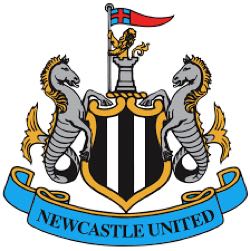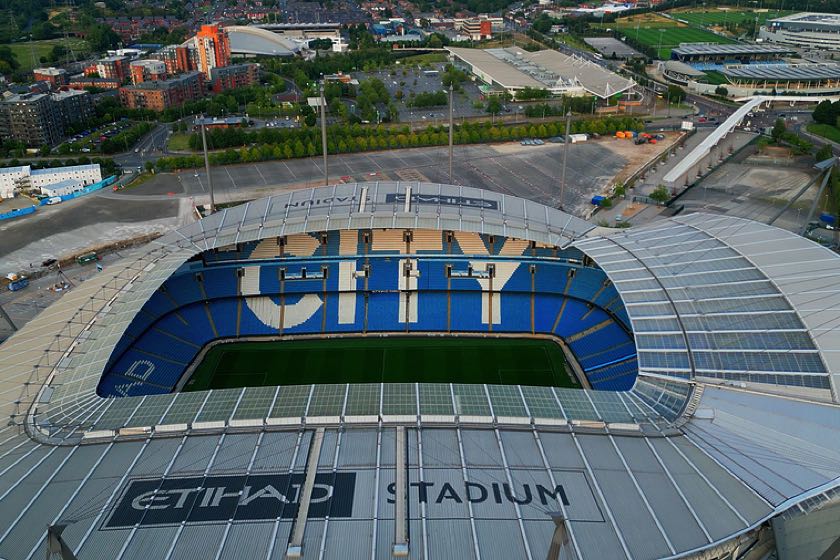Football, like many other sports, has become just as much about scoring wealthy owners and benefactors as it is scoring goals. It is the sport’s answer to the perpetual motion machine: the richest football clubs are able to buy the best players, which brings them success on the pitch and is reflected in huge interest in them globally – that makes them more money, which they can pump into buying the best players and then….well, you get the picture.
Of course, attempts have been made to level the financial playing field in football – both UEFA and the Premier League have introduced rules that can loosely be described as ‘financial fair play’, while English football’s Profit & Sustainability Rules (PSR) allow a club to lose no more than £105 million in a three-year accounting period before they are subject to possible fines and points deductions. So, who are the richest club in world football and does money really buy success in the word of football?
Which Is the Richest Club in Football?
 There are a few different measures of relative wealth in football. You can look at money in the bank, the value of assets (players, stadia etc) or annual profit and loss as just three different metrics. Deloitte, the international accounting firm, publishes their own yearly league table that is based upon revenue generated in the previous 12 months – another useful indicator of a football club’s relative riches.
There are a few different measures of relative wealth in football. You can look at money in the bank, the value of assets (players, stadia etc) or annual profit and loss as just three different metrics. Deloitte, the international accounting firm, publishes their own yearly league table that is based upon revenue generated in the previous 12 months – another useful indicator of a football club’s relative riches.
As of January 2024, there was a new name at the top of the standings: Spanish giants, Real Madrid, have overhauled Manchester City as the most revenue-generating football club on the planet. According to data permed from the 2022/23 season, Real added around £710 million to their coffers – that is the sum of player sales, merchandising, commercial partnerships, prize money and the like.
Man City enjoyed a record-breaking season themselves in 2022/23 – raking in a handsome £705 million, but that wasn’t quite enough to see them remain at the top of football’s rich list. PSG (£697m) and Barcelona (£695m) saw them climb up the league table, although their relative struggles on the pitch have perhaps been a factor behind Manchester United (£648m) falling a place into fifth.
As mentioned, revenue generation is only one measure of wealth – but in an age where clubs have to provably show that they aren’t losing too much money, having a sizable revenue stream flowing into the coffers could be the most vital of the financial indicators.
Who Is the Richest Team in the Premier League?
As far as Deloitte are concerned, Manchester City is the richest team in the Premier League – and by some margin. They generated £70 million more in revenue during 2022/23 than their nearest EPL rival, Manchester City, plus £100 million plus over the rest of the Premier League’s rich club.
| Position | Team | 2022/23 (£m) | From 2021/22 |
|---|---|---|---|
| 2 | Man City | 718.2 | -1 |
| 5 | Man Utd | 648.5 | -1 |
| 7 | Liverpool | 593.8 | -4 |
| 8 | Tottenham | 549.2 | 1 |
| 9 | Chelsea | 512.5 | -1 |
Arsenal were just off the bottom of the standings with £463.1 million in revenue added. It should be said that there’s an elephant in the room. Newcastle United’s takeover by the Saudi Arabian Public Investment Fund (PIF) hadn’t really kicked into gear as of 2022/23, so we can expect the next round of data from Deloitte to have the Magpies higher in the charts – although they don’t generate as much revenue globally as many of their other elite Premier League rivals.
You’ll notice too from the table above that four of the five most revenue-generating clubs in the Premier League slipped down the rankings from a year prior – in most cases, a club from the continent had taken their place. Could this be a sign that the EPL’s financial dominance is on the wane?
Who Are the Richest Football Club Owners in the World?
 As mentioned, future editions of the football rich list will look very different once Newcastle United’s latest balance sheet is thrown into the mix. Their PIF ownership team, which definitely isn’t powered by the Saudi Arabian aristocracy (wink wink), is worth a reported £538 billion when all of their assets are considered.
As mentioned, future editions of the football rich list will look very different once Newcastle United’s latest balance sheet is thrown into the mix. Their PIF ownership team, which definitely isn’t powered by the Saudi Arabian aristocracy (wink wink), is worth a reported £538 billion when all of their assets are considered.
In theory, they can pump as much of that into Newcastle United as they want, as long as they adhere to that £105 million PSR threshold. But with some ‘creative’ accounting a la Man City, it surely won’t be long until the Magpies are splashing the cash on elite players and coaches.
The heir of the Red Bull drinks firm, Mark Mateschtiz, sits second on the list of football’s richest owners – although he’s worth only around 10% of PIF. He oversees the fortunes of RB Leipzig in the German Bundesliga and New York Red Bulls in Major League Soccer, although unique ownership rules in the former and the salary cap in the latter means he’s unable to flex his financial muscle as much as he might like.
Claiming the bronze medal for football’s richest owners is Francois Henri-Pinault, a new name to some readers but one worth a whopping £24.3 billion. He must be disappointed that Rennes, the French club he owns, haven’t been able to kick on since he took the helm in 1998 – returning home after a hard day to his wife, Salma Hayek, perhaps very helpful in minimising such melancholic feelings.
Of course, there’s some smoke and mirrors at work here – in theory, Manchester City and PSG don’t have the richest owners as far as their registered overseers are concerned. But it has long been speculated that the royal families in the UAE and Qatar, respectively, are the real financiers of the two clubs, rather than the nominated ‘individuals’ used to pass UEFA ownership tests.
Does Money Buy Success in Football?
How do we quantity success in football terms? The only real measure that matters, in reality, is silverware won. The best measure of success in European football is the Champions League, which truly reveals the extent of the dominance of the continent’s richest clubs.
In the past ten years of the Champions League, the famous trophy has been hoisted eight times by a club featuring in Deloitte’s list of the most revenue-generating. And of the two anomalies, Liverpool and Chelsea are both ranked inside the top-10. With stacks of domestic silverware between them two, it would be fair to conclude that money – while not a guarantor – goes a long way to securing success out on the football pitch.

